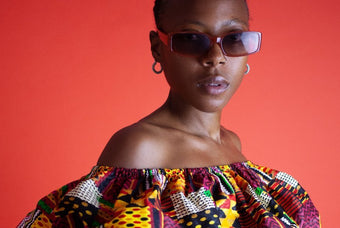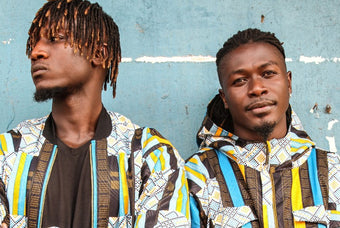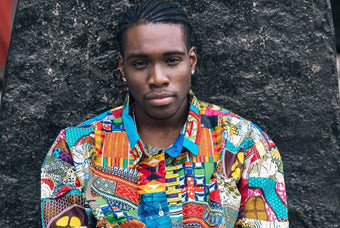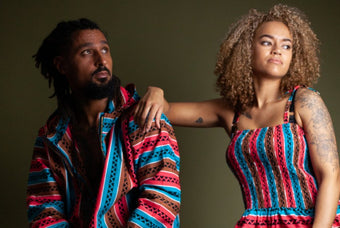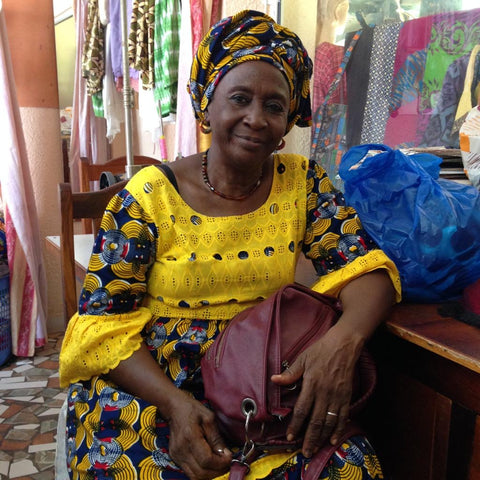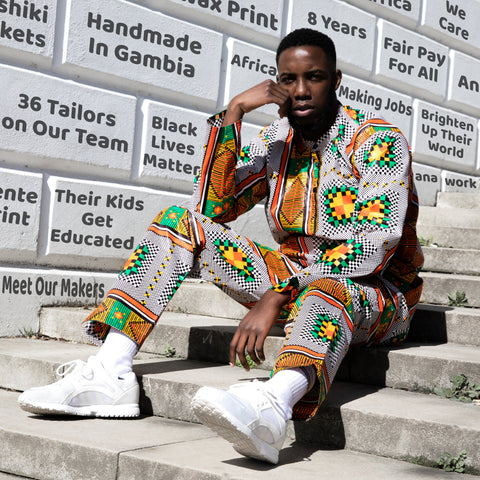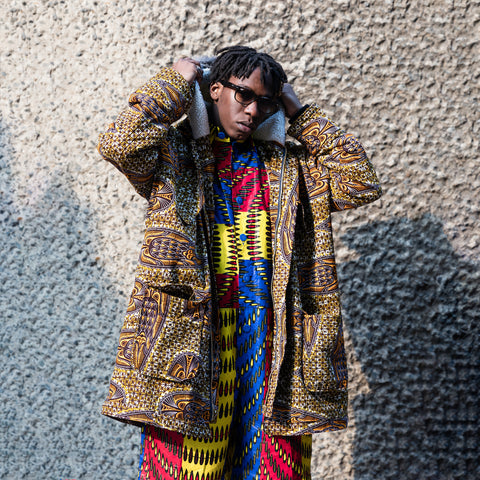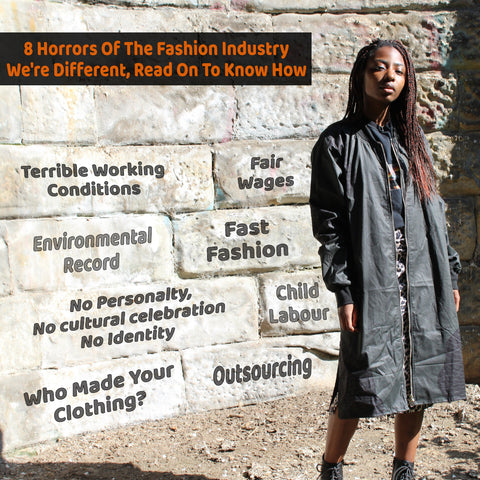
1. Outsourcing. This has been a major issue in the fashion industry for years, and relates to almost all of the other problems. When companies need a boost in stock during busy periods, such as Christmas, they often Outsource production to manufacturing factories that they do not own and have no control over. This paves the way for these factories to operate. They often have terrible working conditions and have a very poor record in worker wages and rights. When I started Continent Clothing 8 years ago, I never ever wanted this to happen. The whole point of Continent Clothing is that it provides tailors, fabric sellers, button makers etc etc work throughout the year. In these 8 years we have built up long lasting relationships with our tailors. They choose their own hours, they control their working conditions, they are genuinely happy. If we feel like things in their shops could be improved, we help out, we paint, we fix and we strive to make sure everything is in order. Forward planning has enabled us to never have to use outsourcing.
We are constantly adding tailors to our team to increase our production as we grow. Our system of always having the next tailor in line for ready for when we need them has so far worked fantastically. During our busy seasons of summer and Christmas we add the next tailor in line to our team, and most importantly we keep them there. This is how we continue to operate in busy time and this is how we will continue to operate in the future. We are responsible for the growth of all the people behind our brand, we must make sure their growth is in line with our own.

2. Pay, I don’t want to name any names here, but I myself have been in certain high-street shops, looked around at the clothing, checked the prices, and my first thought, is, someone (if not all) in the production chain is not getting paid a fair wage for what they are doing. The sad fact is, this is probably true. Running an ethical clothing company for 8 years now has given me a very good idea of how much things cost, from production, to rent, to advertising, etc, and looking at some of the prices on the high street makes me incredibly sad. Those will come at me and mention economies of scale associated with larger corporations, which yes its true will bring down costs in a variety of ways. One of which is bullying smaller production factories into accepting a lower contract costs, which in turn reduces the actual makers wages and predictably causing factory managers to cut corners in health and safety.
At Continent Clothing we personally guarantee that all of our makers are getting paid a fair wage for what they produce. Im not going o beat around the bush, our tailors work very hard, but they get paid exactly what they deserve. The tailors who work less hard get paid less and the tailors who work harder get paid more, as everyone gets paid per item. I personally review their wages every time I visit, just to make sure everything is ok.
3. Working Conditions can be horrible in some of the fashion industries large production factories. Overcrowding, heat, unsafe machinery and poor air quality are just some of the many issues that the fashion industry as a whole need to improve on.
All of the tailors we work with control their own conditions, and we regularly review them to make sure they are ok. One of the advantages of working with individual tailoring shops is that there is never that many people working in them. The largest shop we work with is Hamed’s. He currently has 8 people working there, there is lots of space, air con and the machinery is great.
4. Child Labour. This one is a difficult one for me. Whilst I do not condone child labour. It is really forced child labour that I personally think is the problem in the fashion industry.
Let me explain. In some poor countries parents simply cannot afford to send their children to school. Instead of letting that child simply hang out on the street, getting into trouble, potentially starting a life of crime. They will let the local tailor take them on as an apprentice. This is done locally, normal in the same village, the child obviously still lives at home. They will learn a new skill over the corse of several years, and give themselves an opportunity they would never otherwise have had. This I think is an opportunity and not something to be removed from the world. Just to let you know, we do not employ any children. We review all of our tailors apprentices yearly to make sure we are happy with everyone who works there. I just wanted to highlight a key argument in how many perceive child labour to be wrong
Forced labour is any work or service performed against a person’s will under the threat of punishment. Found increasingly in the private economy in labour intensive and under-regulated sectors, it is mainly caused by poverty and discrimination. This is completely wrong and we stand against this completely.
5. Fast Fashion. A wave of fast fashion has engulfed us for a long time. It is cheaply produced clothing designed to bring catwalk designs to the mainstream as quickly as possible. We would never say never wear or purchase these clothes, but an air of caution must be practised. Fast fashion has many hidden prices, not just in your wallet.
Getting clothing from the source to the shop as quickly and as cheaply as possible has some obvious human costs to it. Worker’s health and conditions are constantly being jeopardised through their long hours, lack of resources, exposure to harmful chemicals, and often physical abuse. The people who make fast fashion clothing have been confirmed to be underpaid, underfed, and pushed to their limits because there are often few other options.
We completely reject this approach. Whilst we can ramp up production to meet demand in busy periods. The very nature of the way we produce our clothing removes this possibly. We only buy fabrics from locally owned shops, this means very limited quantities of popular fabrics. Instead of fixating on what has been popular and rush around and try and find that fabric again, cutting corners on health and safety and human rights. We spin it to become a positive. Every one of our collections is limited edition, we may get that fabric again, but we may not. This stops us from over working fabric sellers or tailors and force them to produce this quickly or unsustainably.
6. Environmentally Record. Environmental costs are equally as bad as human costs, in the long run a climate disaster could impact everyone, so an bad environmental record is just as bad as a human one. Many fast fashion products use toxic chemicals, dangerous dyes, and synthetic fabrics which seep into water supplies in foreign countries (where the clothing is made) and at home when the clothing is washed. Producing synthetic fibres in itself is highly damaging to the environment, they are manufactured from oil. One polyester shirt has a 5.5 kilogram carbon footprint compared to a cotton shirt with a carbon footprint of just 2.1 kilograms.
We believe that everyone can improve their environmental record. Including us. This year we have moved from using plastic packaging, to using 100% Biodegradable Plant Based Plastics for our online order packaging. And we only use paper bags for the packaging in our shops. We also offset 100% of our carbon resulted form our online orders though an Etsy campaign, which is brill. Where we can, and will improve is the shipment of our goods from Gambia to the UK. We are ashamed to say that this whole time, we have been using air freight, through lack of alternatives. Nonetheless, we have finally found a company that will take our goods from Gambia to the UK via Sea Freight, which is much much better for the environment.
7. No personality, especially in the UK in Winter time. We are on a mission to brighten up the UK’s and the worlds wardrobe. I have lived in London for 8 years now. I love it. However every year around this time as a city and a country we discard our colourful summer outfits that fill us with joy and replace them with dark blue or black coats, resigning ourselves to several months of dreariness. We do this on mass, at the same time, almost as if someone has flipped a switch. Not me! I continue to shine my colourful self throughout the darker months, and now you can too. This year we have so much to offer you. We have our wickedly colourful and warm Parka collection, Body Warmers made from our amazing African Prints, and for the first time ever we have added extra warm lining to our Trench Coats and Bomber Jackets. Break the mould this season and stand out from the crowd, you’ll thank yourself for it.
8. Who made your clothes? Do you ever wish you could know exactly who made something? Do you want to know more about a brands clothing? We challenge brands to be more transparent in their production methods, just like we are.
Anyone who have been following us for a while will know we make it our mission to let you know exactly who makes your clothing. We know on a personal basis every single person in our production chain from fabric to tailor to button maker to finished article, and we are constantly working on more ways to show this to you. On our website you can now simply click on a little tab on each collection page and the makers information will pop up. This includes what they make, what they have been doing since working with us and future plans for their production.
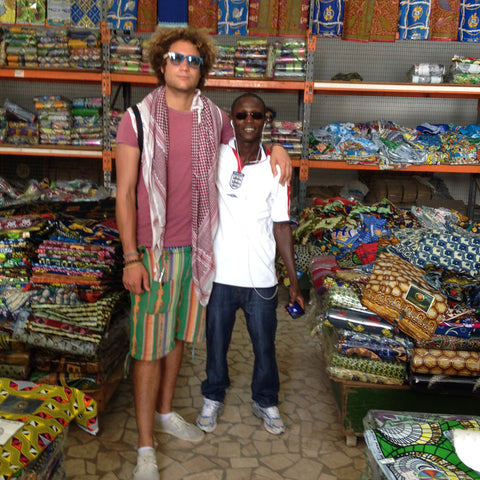
Thanks so much for reading. Visit our website for so much more about our story. www.continentclothing.com. And join our TRIBE for exclusive accesses to offers, competition, news and the occasional giveaway The Tribe
Cheers
Lucas BT, Continent Clothing Founder
(if you would like any more info on what is written or have any questions about Continent Clothing, simply email sales@continentclothing.com)
You May Also Like


